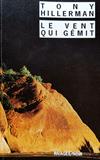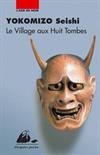
Treat it Gentle
1 journaler for this copy...
Journal Entry 1 by  ETMadrid
ETMadrid from Rotherhithe, Greater London United Kingdom on Sunday, July 12, 2009
from Rotherhithe, Greater London United Kingdom on Sunday, July 12, 2009
 ETMadrid
ETMadrid from Rotherhithe, Greater London United Kingdom on Sunday, July 12, 2009
from Rotherhithe, Greater London United Kingdom on Sunday, July 12, 2009
I picked this up in Borough Green station and put some coins in the charity box, when on a walk described in the "Rough Guide to Walks in London and Southeast England".
Journal Entry 2 by  ETMadrid
ETMadrid from Rotherhithe, Greater London United Kingdom on Thursday, October 15, 2009
from Rotherhithe, Greater London United Kingdom on Thursday, October 15, 2009
 ETMadrid
ETMadrid from Rotherhithe, Greater London United Kingdom on Thursday, October 15, 2009
from Rotherhithe, Greater London United Kingdom on Thursday, October 15, 2009
I've just read 70 pages so far, but am loving it...the way he talks about music is something quite special. Fascinating too the story he tells of his grandfather, a great follow-on from having read "Incidents in the Life of a Slave Girl". Likewise, it's really fascinating to read about the beginnings of Jazz, and I'm reminded of another recent book, "Flamencos de ganania", I've just read about the importance of music amongst the largely gypsy farming communities on estates in Southern Spain.
There are so many beautiful passages. Here are a couple:
p11: "But you know, no music is my music. It's everybody's who can feel it. You're here...well, if there's music, you feel it - then it's yours too. You got to be in the sun to feel the sun. It's that way with music too."
p14: "I can remember when I was young. I didn't have toys like others. I never had a toy to play with. I wouldn't have known what to do with a toy if you gave me one. I started once to write a song for a boy like that. The song, it was called Sans Amis. He had nothing to play with and noone to play with. But he had a song. He kept making that song over and over out of himself, changing it around, making it fit. That boy,he had this song about being lonely, but as soon as he had the song, he wasn't lonely any more. He was lucky. He was real well off; he had this thing he could trust, and so he could trust himself."
17/10/09 and a couple more:
p106 "You know there's a mood about the music, a kind of need to be moving. [...] You just can't keep the music unless you move with it."
Sidney Bechet was clearly a talented story-teller. I love the way he recreates things that have happened to himself (and the incredible tale of his grandfather earlier on in the book) in such a vivid way. He was not writing, he was speaking into a tape, and this passage for me is like music. Hanging onto a moving train for dear life, on what was a very dark night, he is busy ducking the club being swung at him by the brakeman who'd seen him there. This passage, with its rythmic repetition, resonates with the sound of the wheels and the fear of what could be about to happen:
p112 "I guess I wasn't much more to be seen than the whites of my eyes - they must have been covering my whole face about then. I guess maybe he took me for even younger than I was. Anyhow, he came down then and he made me climb up the ladder and go ahead over the tops of the cars. I was plenty scared, but once he came down there I knew I had to do like he said. So I went crawling along holding on to that raised walk they got along the tops of those cars and he came walking along behind me like I was his prisoner. The train was beginning to sway some, and I was holding on to that walk hard, but he was just coming on behind me like he was walking a beat and thinking nothing of it. There was all that smoke laying back over the train from the engine, and there was that swaying and there was the brakeman behind me, coming on, fixing to do whatever he meant to do. And all that day and all that night, it seemed like it had been going on so long it couldn't ever end."
Like music, or like a film in slow motion, with the soundtrack building up the fear and suspense.
On that day, things go his way, and he says of it:
p113 "That kind of changing around, the way luck goes faster than you can figure it, it just won't be understood. You start doing a thing and sometimes there's nothing happens, and sometimes there's trouble busting faster than you know it, and sometimes its's luck comes busting."
There are so many beautiful passages. Here are a couple:
p11: "But you know, no music is my music. It's everybody's who can feel it. You're here...well, if there's music, you feel it - then it's yours too. You got to be in the sun to feel the sun. It's that way with music too."
p14: "I can remember when I was young. I didn't have toys like others. I never had a toy to play with. I wouldn't have known what to do with a toy if you gave me one. I started once to write a song for a boy like that. The song, it was called Sans Amis. He had nothing to play with and noone to play with. But he had a song. He kept making that song over and over out of himself, changing it around, making it fit. That boy,he had this song about being lonely, but as soon as he had the song, he wasn't lonely any more. He was lucky. He was real well off; he had this thing he could trust, and so he could trust himself."
17/10/09 and a couple more:
p106 "You know there's a mood about the music, a kind of need to be moving. [...] You just can't keep the music unless you move with it."
Sidney Bechet was clearly a talented story-teller. I love the way he recreates things that have happened to himself (and the incredible tale of his grandfather earlier on in the book) in such a vivid way. He was not writing, he was speaking into a tape, and this passage for me is like music. Hanging onto a moving train for dear life, on what was a very dark night, he is busy ducking the club being swung at him by the brakeman who'd seen him there. This passage, with its rythmic repetition, resonates with the sound of the wheels and the fear of what could be about to happen:
p112 "I guess I wasn't much more to be seen than the whites of my eyes - they must have been covering my whole face about then. I guess maybe he took me for even younger than I was. Anyhow, he came down then and he made me climb up the ladder and go ahead over the tops of the cars. I was plenty scared, but once he came down there I knew I had to do like he said. So I went crawling along holding on to that raised walk they got along the tops of those cars and he came walking along behind me like I was his prisoner. The train was beginning to sway some, and I was holding on to that walk hard, but he was just coming on behind me like he was walking a beat and thinking nothing of it. There was all that smoke laying back over the train from the engine, and there was that swaying and there was the brakeman behind me, coming on, fixing to do whatever he meant to do. And all that day and all that night, it seemed like it had been going on so long it couldn't ever end."
Like music, or like a film in slow motion, with the soundtrack building up the fear and suspense.
On that day, things go his way, and he says of it:
p113 "That kind of changing around, the way luck goes faster than you can figure it, it just won't be understood. You start doing a thing and sometimes there's nothing happens, and sometimes there's trouble busting faster than you know it, and sometimes its's luck comes busting."
Journal Entry 3 by  ETMadrid
ETMadrid from Rotherhithe, Greater London United Kingdom on Thursday, October 22, 2009
from Rotherhithe, Greater London United Kingdom on Thursday, October 22, 2009
 ETMadrid
ETMadrid from Rotherhithe, Greater London United Kingdom on Thursday, October 22, 2009
from Rotherhithe, Greater London United Kingdom on Thursday, October 22, 2009
I have been really wowed by this book, and it joins the many ranks of "first" in my own personal history of bookcrossing. What do I mean? Well, others have been for example, the first I received out of the blue in response to my "wishlist", the first bookray, the first book won in a RABCK lottery, the first I released etc etc. But this one stands out as it is the first book that I just cannot let go. Since I discovered bookcrossing and its full potential, I have embraced the concept, despite the worried reactions of my husband who feared his own collection in peril. I read this book now as I had in mind two friends who I thought would love it, and one of them is coming to stay in the near future. The other, it turns out, already ranks it as one of his top ten reads - I'm not surprised. But it's future I think is going to be on my bookshelf, drier and more comfortable I'm sure than its former abode, for it looks like it's been through a puddle on its way to me.
I don't feel too bad about this really. It is one that I registered myself, after all. I've bought quite a few books in the past two or three years that never feature on my bookcrossing "bookshelf" as they are on subjects too close to my heart. I must read them before I decide their fate. But this one fell into the category I've self-created: bought randomly, second hand, in aid of charity, and therefore to be registered, read and then re-released, more or less regardless of what I think of them. Well, I've come across an exception.
The station where I found it is small and very well-kept, and upon nearly every window ledge and shelf are books. On a table is a donation box, and there are receipts to show much money they have raised for charity. Wonderful. Except that had it not been for my recently-renewed obsession with reading developed in many ways thanks to bookcrossing, I may not have spotted this. For there was not another book there I'd have given the time of day to. But before I go on, I should add that it is thanks to another bookcrossing book, very generously sent to me by Klamauk all the way from Germany that I was there in the first place.
This is an extraordinary book for many reasons, one being that Sidney Bechet did not actually put pen to paper. He was speaking into a tape. Joan Williams instigated this, and Desmond Flower edited those first recordings and tied up some of the loose ends, as much as he could before Sidney died. There are so many bits that are magnificent. I can't resist the temptation to quote a bit more:
.
p135: "Inspiration, that's another thing. The world has to give you that, the way you live in it, what you find in your living. The world gives it to you if you're ready. But it's not just given...it has to be put inside you and you have to be ready to have it put there. All that happens to you makes a feeling out of your life and you play that feeling. But there's more than that. There's the feeling inside the music too. And the final thing, it's the way those two feelings come together."
And the sadder thoughts, as he seeks to understand the fate of some of his fellow "musicianers":
p136: "Maybe a musicianer, he finds too much in his music...too much of what he wants to find, of what he needs to find. And then when he turns away from the music, when he's through playing, it's not there. It's not there, and he needs it so desperate bad. Maybe it's like all the life there is to him is in the music. But he can't play all the time. Whether he's got to stop for the night or whether he's got to stop for old age...whatever it is, he's got to stop some time. And then maybe he just can't bear to have it stopped.
My answer - all I can say of it - it's just to be giving, giving all your life, finding the music and giving it away."
And finally, a passage in which he talks about the appreciation of music - he's not just concerned about the playing of it. Every critic of the arts should read this:
p216: "But first, you have to like it; you have to be wanting to hear it. I read many a thing written by this critic and that critic, but it all comes to that one thing: if you're interested to hear the music, if it's a pleasure to you, then you can understand it;"
I don't feel too bad about this really. It is one that I registered myself, after all. I've bought quite a few books in the past two or three years that never feature on my bookcrossing "bookshelf" as they are on subjects too close to my heart. I must read them before I decide their fate. But this one fell into the category I've self-created: bought randomly, second hand, in aid of charity, and therefore to be registered, read and then re-released, more or less regardless of what I think of them. Well, I've come across an exception.
The station where I found it is small and very well-kept, and upon nearly every window ledge and shelf are books. On a table is a donation box, and there are receipts to show much money they have raised for charity. Wonderful. Except that had it not been for my recently-renewed obsession with reading developed in many ways thanks to bookcrossing, I may not have spotted this. For there was not another book there I'd have given the time of day to. But before I go on, I should add that it is thanks to another bookcrossing book, very generously sent to me by Klamauk all the way from Germany that I was there in the first place.
This is an extraordinary book for many reasons, one being that Sidney Bechet did not actually put pen to paper. He was speaking into a tape. Joan Williams instigated this, and Desmond Flower edited those first recordings and tied up some of the loose ends, as much as he could before Sidney died. There are so many bits that are magnificent. I can't resist the temptation to quote a bit more:
.
p135: "Inspiration, that's another thing. The world has to give you that, the way you live in it, what you find in your living. The world gives it to you if you're ready. But it's not just given...it has to be put inside you and you have to be ready to have it put there. All that happens to you makes a feeling out of your life and you play that feeling. But there's more than that. There's the feeling inside the music too. And the final thing, it's the way those two feelings come together."
And the sadder thoughts, as he seeks to understand the fate of some of his fellow "musicianers":
p136: "Maybe a musicianer, he finds too much in his music...too much of what he wants to find, of what he needs to find. And then when he turns away from the music, when he's through playing, it's not there. It's not there, and he needs it so desperate bad. Maybe it's like all the life there is to him is in the music. But he can't play all the time. Whether he's got to stop for the night or whether he's got to stop for old age...whatever it is, he's got to stop some time. And then maybe he just can't bear to have it stopped.
My answer - all I can say of it - it's just to be giving, giving all your life, finding the music and giving it away."
And finally, a passage in which he talks about the appreciation of music - he's not just concerned about the playing of it. Every critic of the arts should read this:
p216: "But first, you have to like it; you have to be wanting to hear it. I read many a thing written by this critic and that critic, but it all comes to that one thing: if you're interested to hear the music, if it's a pleasure to you, then you can understand it;"






